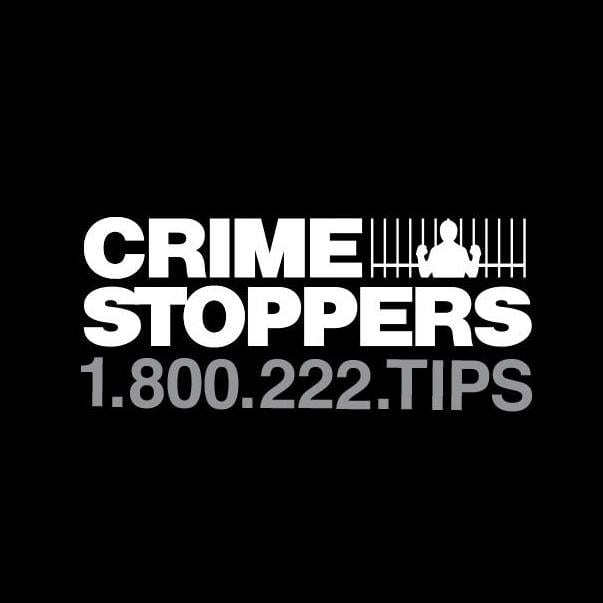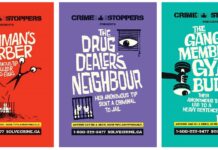IF you discover you’ve been duped into buying fake goods – dangerous or otherwise – or find out they’re being sold at market stalls or at other seemingly “temporary” retailers, Metro Vancouver Crime Stoppers encourages you to call 1-800-222-8477 to anonymously report the sellers.
Tips may also be sent by texting a message to CRIMES (274637), Crime Stoppers’ iPad/iPhone app, online at www.solvecrime.ca or by following the link on the Metro Vancouver Crime Stoppers Facebook page.
“This is a safety issue as much as a criminal one, and we urge anyone with information to contact us anonymously, so we can pass on the tip to police to investigate,” says Linda Annis, Executive Director of Metro Vancouver Crime Stoppers. “Most of these goods stay under the radar and don’t get reported because people think they’re getting a good deal. Clearly that’s not the case if you plug in a power bar that bursts into flames or gives you a shock, or if a cheap charger damages your smartphone or laptop.”
The Canadian Anti-Counterfeiting Network (CACN) says there’s an increasing number of illegal counterfeit goods available across Canada.
- We import a lot of goods from Pacific Rim and other countries, so fake goods frequently enter the country at our ports of entry. Some of it stays here, while other counterfeits are just going through Canada’s border for easy entry into the U.S.
- The resulting economic impact is significant. Loss in trade to legitimate brand owners is estimated in excess of 1 trillion dollars globally per year (2013).
- Employment and tax revenues are also impacted as counterfeiters don’t collect or pay taxes or provide legitimate jobs. Counterfeit goods are frequently manufactured in appalling, unsanitary conditions and often involve child and forced labour.
- Online ordering is also part of the proliferation of these goods by making the purchase and delivery of counterfeit goods easy but prevents us from examining them before we buy them.
“The makers of counterfeit goods don’t care what dangerous materials go into these goods. The risk is low and profitability is high,” says lawyer Karen MacDonald who works with industry associations such as CACN and acts for brand owners in her role as partner with Norton Rose Fulbright Canada LLP in Vancouver.
“Counterfeiting – luxury goods and otherwise – is far from a victimless crime. Law enforcement worldwide has linked counterfeiting to organized crime, drug trafficking and the funding of terrorism,” MacDonald adds. “In a recent high-profile example, the perpetrators of the Charlie Hebdo shooting in 2015 financed their weapons partly by selling fake Nike sneakers. In fact, they were previously under surveillance by the French anti-terrorist police, who ceased their surveillance when they incorrectly decided the suspects were dealing in counterfeit goods but nothing ‘more’.”
Many counterfeit products are very convincing and seem like the real thing unless you know what you’re looking for. Some clues:
- The prime indicator is price. Some things “just shouldn’t be that cheap.”
- Shopping at reputable stores with merchandise sourced from the real manufacturer is a good defense. With online shopping, it’s hard to ensure you’re buying legitimate product.
- Look for CSA or UL labels on electrical products. Many fakes have them, but anything without them is definitely suspect.
- Don’t just look on the box, check the product itself – and make sure the country of manufacture on the box matches what’s printed on the actual product.
- Look for poor spelling and grammar or odd UPC codes or printing on products, or previously opened packaging. They’re often red flags.
- Be aware, no product’s immune. Anything from toys to car and aircraft parts may be counterfeit.













